by Jonathan Stochel
The Commodity Toolset, which is used to create deals for trading physical commodities and can receive scheduling and actualization updates, utilizes 3 methods of “commodity” pricing. This commodity price represents payment for the underlying delivery of the physical commodity utilizing BAV (Best Available Volume from Trading to Scheduling to Final). This commodity price is distinct and should not be confused with any additional associated variable or non-variable fees. The three main commodity pricing methods are Profile Pricing, Delivery Ticket Pricing and Parcel Pricing.
Profile Pricing is used for a deal whose pricing and settlement is based on a specific sequence (Daily, Weekly, Monthly, Custom Date Sequence, …) and doesn’t change. A profile record, representing the commodity payment is created for each period in the term of the deal. While this method of pricing works very nicely for commodities that are continuous on a daily schedule and paid monthly like Natural Gas or Crude pipelines, it falls short of the needs for bulk deliveries where delivery dates can shift around and require additional parcels with their own independent settlement. Hence, Profile pricing does not work well for bulk commodities.
Delivery Ticket Pricing functionality was added to better reflect the reality of bulk commodities which might start out at deal creation to have a regular delivery schedule, but through the scheduling process can be split into multiple deliveries, each requiring their own settlement and potential commodity pricing adjustments. However, a deal using Delivery Ticket Pricing starts out exactly like Profile Pricing. Profiles are generated to begin with, but then as scheduling occurs the exposure moves from the Profile to the Delivery Ticket Fee which is generated when a parcel is first scheduled. Essentially, the profile starts as the commodity pricing for the deal and is then reduced to zero once fully scheduled. That shift of the commodity price from Profiles to cashflow based Fees causes shifting of exposure in sim result rows making it challenging to track a parcel from trading through to scheduling and settlement.
To solve this problem, a new mode of commodity pricing called Parcel Pricing was introduced to replace and greatly improve on Delivery Ticket Pricing. In this mode, the Profile is essentially not used. Instead of creating the commodity pricing Fees when a Parcel is first scheduled, they are generated earlier when the deal is first created. They are grouped by trading parcel, yet can be broken out into individual scheduling parcels that can be priced and scheduled independently. These fees are consistent throughout the entire lifecycle of the deal and are updated when any trading, scheduling or actualization updates occur. In addition, since parcels are also tracked by Strategy, using this mode of pricing makes it much simpler to report physical/financial exposure and PNL by Strategy, even when using inventory and/or transportation.
In summary, if pricing or invoicing/settlement is required per delivery then Parcel Pricing is the way to go.
Here are some of the other highlights of using Parcel Pricing:
- A parcel, which represents an individual obligation to deliver or receive physical shipment of a bulk commodity, is the most granular data object for which a trader and scheduler can manage relevant data: Strategy, Quantity, Pricing, Physical Valuation, Various Dates, Delivery Events, Product Specifications, Fees, etc.
- Deal level fields for entry of Lifting Period, Liftings Per Period and the ability to enter quantity by Lifting, or any period of time, provides a flexible way to generate parcels.
- With the Parcel Management screen the trader can manage data at the more granular Parcel level, as opposed to doing it at the Profile level. This leads to more accurate PNL estimates and exposure calculations and reduces the need to create additional sides on the deal to capture deliveries that have different pricing or other characteristics providing better usability and leaner, more efficient deals.
- Simulation Results are tracked by Parcel ID providing consistent tracking for the entire lifecycle.
- Settlement events for all expected deliveries are generated on deal validation and are tracked by Parcel ID.
It’s important to note that since Parcel Pricing replaces the need for Delivery Ticket Pricing, OpenLink will de-support Delivery Ticket Pricing in Endur V16.1+. So, if you are on an earlier version of Endur/cMotion and use Delivery Ticket Pricing, please make sure to prepare for the migration of deals over to Parcel Pricing when planning your next upgrade.

